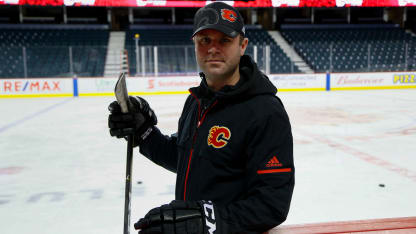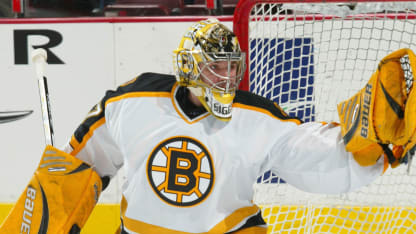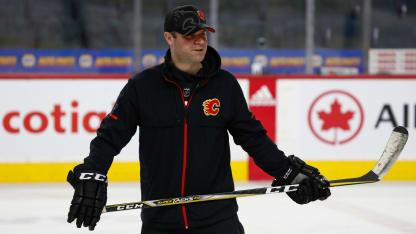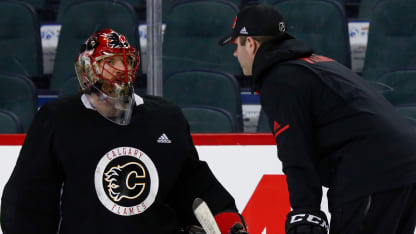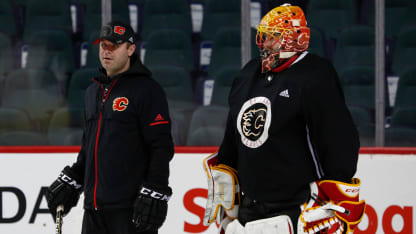"I'd always looked up to Sean Burke,'' Jordan Sigalet is reminiscing, a dozen years minus one day later after his lone NHL appearance. "And I'll never forget, he was skating around in warm-up, no helmet on.
"Old school, right?
"I'm stretching at centre, then here comes this guy I look up to and he's stretching beside me, no helmet on. Just glances over and says: 'How's it going, kid? Good luck.' Taking time to talk to a young guy he knew was just up for a little bit and probably wouldn't be around long. Making him feel as if he belonged.
"I still have a picture of that.
"Such a cool moment for me."
Another anniversary of those 43 seconds - 857 fewer than pop artist/icon Andy Warhol predicted for every person on Earth back in the '60s - arrives for Sigalet today.
"Being called up in itself was such a special moment,'' says the Flames' goaltending coach. "As a kid, growing up, that's everybody's dream, isn't it? To make it to the NHL.
"So just to be backing up, you're living that childhood dream. Then in any game, with a minute left, you never expect to be going in. It's rare for anything to happen that late, an injury or what have you.
"Anyway, we're in the last minute (the Boston Bruins ahead 6-3), I look up from my seat on the bench and (Andrew) Raycroft's hunched over."
Suffering from a high-ankle sprain, the B's starting goaltender that night of Jan. 7, 2006 against the Tampa Bay Lightning exited the ice without so much as a peep, making a beeline for the home dressing room at TD Banknorth Garden.
The JumboTron scoreclock time: 19:17 of the third period.
"The next thing I know, they're handing me my helmet and my gloves. You're freezing cold. Your heart starts to race a little bit.
"You don't know how long they're going to keep you up, or if you'll ever get the chance to play again. This is what you've waited for what seems your whole life.
"Unfortunately for me, that's the only minute I played in the NHL."
